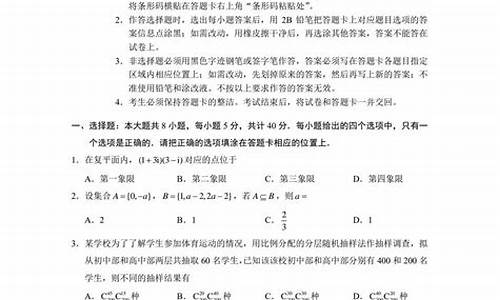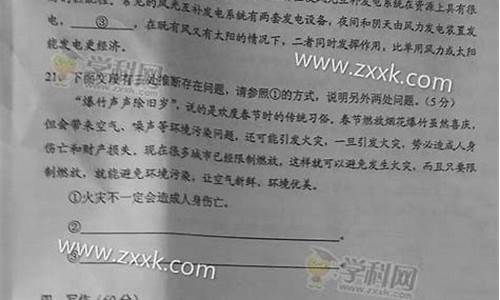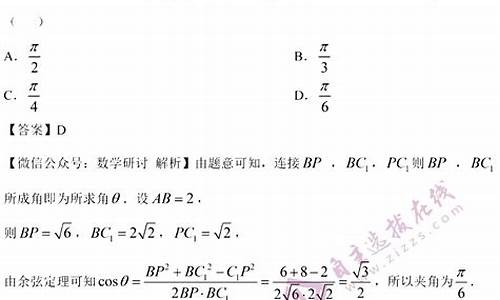您现在的位置是: 首页 > 教育改革 教育改革
高考英语用英语怎么说,when高考
tamoadmin 2024-05-21 人已围观
简介1.when的用法一、whenwhen指时间,其先行词表示时间,在句中作时间状语。例如:This was the time when he arrived.这是他到达的时间。说明:①先行词:time②关系副词:when③when he arrived 这个定语从句修饰 time(作为 time 的定语)④when 在这个从句中充当状语,表时间。二、wherewhere指地点,其先行词表示地点,在句
1.when的用法

一、when
when指时间,其先行词表示时间,在句中作时间状语。
例如:This was the time when he arrived.
这是他到达的时间。
说明:
①先行词:time
②关系副词:when
③when he arrived 这个定语从句修饰 time(作为 time 的定语)
④when 在这个从句中充当状语,表时间。
二、where
where指地点,其先行词表示地点,在句中作地点状语。
例如:This is the place where he works.
这是他工作的地点。
说明:
①先行词:place
②关系副词:where
③where he works 这个定语从句修饰 place
④where 在这个定语从句中充当状语,表地点。
扩展资料
which和where引导定语从句时的用法及差异
1、定语从句用which引导时,which在定语从句中作主语或宾语,从句结构不完整;
定语从句用where引导时,where在定语从句中作地点状语,从句结构(主语、宾语)完整。
如:I want to go to Century Park, where I will have a good time with my friends. / I want to go to Century Park, which has already attracted?many tourists.
2、非限制性定语从句有时修饰整个句子或句子的一部分,此时只用which来引导定语从句,前面用逗号隔开。
如:He was very rude to his teacher, which certainly annoyed her.
3、在从句结构完整的前提下,抽象名词(如situation, condition, point, case, environment, circumstance, advantage, system, development等)后用where引导定语从句。
如:His technique developed to the point where he can repair many electrically-powered machines.
when的用法
while 后面接延续性行为,但这个动作肯定和主句动作时间不一样长。如:he was talking to me while he was watching the tv。应该说“看电视”比“谈话”时间长。而as通常两个动作一直相随,很可能时间相同。如:he was thinking of a question as watching the tv。这两个动作就是一直相随的。
as意为“一边……一边……”或“与……同时”,重在表示动作同时发生、伴随进行。while只指“时间段”,不指“时间点”,从句的动词只限于持续性动词。
1 从句表示"随时间推移"连词能用as,不用while。
As the day went on, the weather got worse.
日子一天天过去,天气越变越坏。
2 as引导短暂性动作的动词。
Just as I stopped my car, a man came up to me.
————————————————————————————————
when,as,while用法之异同
请看99年高考的一个选择题: <br>
-I′m going to the post office. <br>
-_____ you are there, can you buy me some stamps? <br>
A.As B.while C.Because D.If <br>
根据本题语境,选项C、D显然不合题意,故答案应在A、B之间选择。为什么正确答案为B而不是A呢? <br>
<br>
先看when, as, while在引导时间状语从句时的主要用法: <br>
<br>
when表示“当……的时候”。从句中既可用延续性动词,又可用非延续性动词,这些动词既可以表示动作,又可表示状态。从句中的动作既可和主句的动作同时发生,又可在主句的动作之前或之后发生。如: <br>
When I came into the room, I found him lying there asleep. <br>
Mary was having dinner when I saw her. <br>
When you meet a word you don't know, consult the dictionary. <br>
She was beautiful when she was a girl. <br>
<br>
如果when从句的主语与主句主语相同,谓语又是be动词,从句主语和be可以省略:当when从句主语与主句主语相同时,用when加分词可以替代状语从句。如: <br>
When(you are)in trouble, ask her for help. <br>
When(I was)sleeping, I never heard a thing. <br>
<br>
as表示"当……时""一面……一面","随着"。其具体用法如下: <br>
<br>
1、表示"当……时"、"和……同时"。常指从句的动作未结束,主句中的动作就已发生。从句中多用表示动作的动词,而不用be动词或表示感觉、理解、知道这类动词。 <br>
As he stood there, he saw two men enter the bar. <br>
She dropped the glass as she stood up. <br>
As I was walking down the street, an American asked me for directions to the nearest station. <br>
<br>
2、用于平行的动作中,表示"一面……一面……"。常指一个主语同时进行两个动作。如: <br>
He sang as he worked. <br>
The students took notes as they listened. <br>
<br>
3、用于平行发展的结构中,表示"随着……"。常指一个行为是另一个行为的结果,或一种状态随另一种状态变化。句中的动词多表示状态的发展变化。 <br>
As the wind rose the noise increased. <br>
As it grew darker it became colder. <br>
As he grew older he became more confident. <br>
<br>
While表示"在……的时候"、"在……期间"。它强调主句的动作与从句的动作同时发生或主句的动作发生在从句的动作过程中。While从句中必须是表示动作或状态的延续性动词。如: <br>
Never get on or off a bus while it is in motion. <br>
The weather was fine while we were in Beijing. <br>
She called while I was out. <br>
<br>
1、如果主句的动作在从句的动作过程中发生,从句常用进行时。如: <br>
While we were swimming someone stole our clothes. <br>
Don′t talk so loud while others are working. <br>
<br>
2、如果主句和从句主语相同,while加现在分词可代替状语从句。如: <br>
We must strike while the iron is hot. <br>
He took a bath while I was preparing dinner. <br>
Come and pay a visit to the park while the flowers are in bloom. <br>
<br>
通过以上分析我们可以看出,when, as, while引导时间状语从句时,侧重点有所不同。 <br>
1、When可指时间点,又可指时间段,从句中可用延续性动词,也可用非延续性动词。 <br>
2、While总是指一个时间段,从句中必须用延续性动词。 <br>
3、as多用于平行结构。表示两个动作同时发生:一个主语同时进行两个动作:一种状态随另一种状态的变化而变化。 <br>
4、表示主句的动作发生在从句的较长动作过程中,when, while, as均可使用。从句中为be动词时,多用when和while。谈论两个同时进行的长动作可用while;谈论两个平行动作或两种状态变化多用as。 <br>
<br>
<br>
再看文章开头所给的高考题,主句动词为buy,从句动词为be,不是两个平行动作,显然不应选项A,所以最佳答案为B。
when于何时;在那时;当……时;尽管
(1)when did you come
(2)It was raining when we arrived.
(3)How can I help them to understand when they won”t listen to me?
1.什么时候/场合When did you last see him?
When(=in what circumstances) would such a solution be possible
2.(用于时间的表达方式之后)在那时Sunday is the only day when I can relax.
There are times when I wonder why I do this job.
3.当时THe last time I went to Scotland was in May, when the weather was beautiful
Ⅱpron什么时候Until when can you stay?
Ⅲconj.
1.在……期间I loved history when I was at school.
2.在……之后Call me when you are finished.
3.在任何……的时候Can you spare 5 minutes when it is convenient.
4.一……就He had just drifted off to sleep when the phone rang.
5.考虑到How can they expect to learn anything when they never listen?
6.虽然,可是She claimed to be 18, when I know she is only 16.









